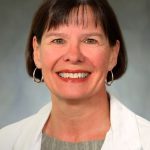According to CORC Chair Eileen Moynihan, MD, CORC’s goal is to ensure continuous practice support. CORC “has worked diligently to create this informative forum for practicing physicians,” she says. “We strongly believe that these topics will be relevant to the ACR membership at large.”
For more information, contact Antanya Chung, CPC, CCP, ACR director of practice management, at (404) 633-3777 ext. 818 or [email protected].
Completing the Puzzle:
2007 ARHP Clinical Focus Course
When doing a jigsaw puzzle, a person will work – piece by piece – to complete the task. As each piece fits into the proper place, the puzzle solver gains a clearer picture of the final outcome. This picture keeps the puzzle solver coming back for more.
One of the factors that draws health professionals to rheumatology is that the diagnosis is not always immediately evident. Obtaining history, performing physical exams, collecting and reviewing data, and communicating with the patient provide just a few of the pieces of the puzzle clinicians must put together when serving those who have rheumatic conditions. Collecting puzzle pieces involves more than the musculoskeletal system. In fact, all organ systems must be considered.
The 2006 Annual Scientific Meeting included lectures reviewing the cardiovascular, pulmonary, renal, neurologic, ophthalmic, and dermatologic aspects of rheumatic disease. Based on attendee feedback, the 2007 course, “Completing the Puzzle: Other Aspects of Rheumatic Diseases,” was developed to follow the same pattern and will benefit those rheumatology puzzle solvers who want to enhance their knowledge and improve their care of both adult and pediatric patients with rheumatic diseases.
The course was specifically designed for nurses, nurse practitioners, and physician assistants, but all interested clinicians are invited to attend.
By completing this course, attendees should gain knowledge to help them put together their patient puzzle, including learning to recognize clinical manifestations and complications, select appropriate laboratory and radiographic studies, analyze data, and propose, apply, and manage pharmacologic and non-pharmacologic treatments for rheumatic diseases.
In addition, CME and Certificate of Participation credit is being offered for the first time to those who attend.
The course will be held Wednesday, November 7, from 7:30 a.m. – 4:30 p.m. Because this is a pre-conference course, there is an additional fee for participation. To register, visit www.rheumatology.org/arhp/index.asp.
With the return of attendee favorites and the addition of new sessions and features, the 2007 ACR/ARHP Scientific Meeting is the premier event for specialists in the field of rheumatology. For more information and to learn how you can join an estimated 10,000 professionals in Boston November 6–11, visit www.rheumatology.org/annual.


